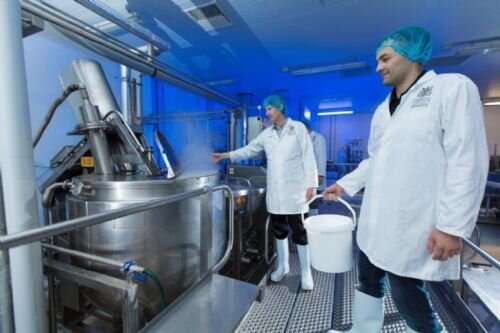New processing and cooking technology helps food manufacturers reduce carbon and energy consumption

Scientists have uncovered new ways for food industry manufacturers to help tackle climate change by altering their cooking techniques to reduce energy consumption.
New research carried out by the University of Lincoln, UK, in collaboration with industry partner OAL found that using novel approaches to a process called Steam Infusion can reduce energy consumption by 17%, cutting close to 9 tons of greenhouse gas (GHG) emissions per production line each year.
The research, led by Dr. Wayne Martindale of the National Centre for Food Manufacturing at the University of Lincoln and OAL’s Development Chef, Christopher Brooks, also reports that Steam Infusion can improve the quality of food products.
With many manufacturers having signed up to net zero commitments, the need to tackle emissions associated with supply chain activities is creating new business strategies, with many organizations engaging with carbon crediting schemes and purchasing greener energy supplies.
Steam Infusion technology is unique in that it reduces carbon emissions directly at the site of manufacturing, which can support businesses’ plans to incrementally cut emissions throughout their facilities, while the technology enables alignment to UN Sustainable Development Goals.
Dr. Wayne Martindale, Associate Professor, Enterprise & Food Insights and Sustainability at NCFM and lead author of the study, said: “This is a world first in terms of looking into the sustainability benefits of technologies like Steam Infusion. The most energy intensive parts of food manufacturing facilities are often heating operations so it’s exciting to see how Steam Infusion can help to reduce the impact of the industry. In this report, we connect a manufacturing innovation to consumer experience and improved product quality with greater sustainability credentials—a win for manufacturers and consumers alike.”
Jake Norman, Sales Director at OAL, added: “We knew that Steam Infusion could help food and beverage manufacturers to become more energy efficient from anecdotal evidence but it’s great to have it confirmed in a peer-reviewed study. As manufacturers adjust their plans to achieve net zero goals, we’re confident that Steam Infusion can support them by delivering top quality products that consumers love with lower emissions.”
Dr. Wayne Martindale and Jake Norman will be speaking at the Lincoln leg of the Zero Carbon Tour leading to COP26 in Glasgow, discussing how technologies such as Steam Infusion can help the food industry to reduce its impact on the environment.
The research has been reported in the peer-reviewed paper “Transformational Steam Infusion Processing for Resilient and Sustainable Food Manufacturing Businesses,” published in Volume 10, Issue 8 of Foods.
Christopher Brooks et al, Transformational Steam Infusion Processing for Resilient and Sustainable Food Manufacturing Businesses, Foods (2021). DOI: 10.3390/foods10081763
Citation:
New processing and cooking technology helps food manufacturers reduce carbon and energy consumption (2021, September 16)
retrieved 16 September 2021
from https://techxplore.com/news/2021-09-cooking-technology-food-carbon-energy.html
This document is subject to copyright. Apart from any fair dealing for the purpose of private study or research, no
part may be reproduced without the written permission. The content is provided for information purposes only.
For all the latest Technology News Click Here
For the latest news and updates, follow us on Google News.

